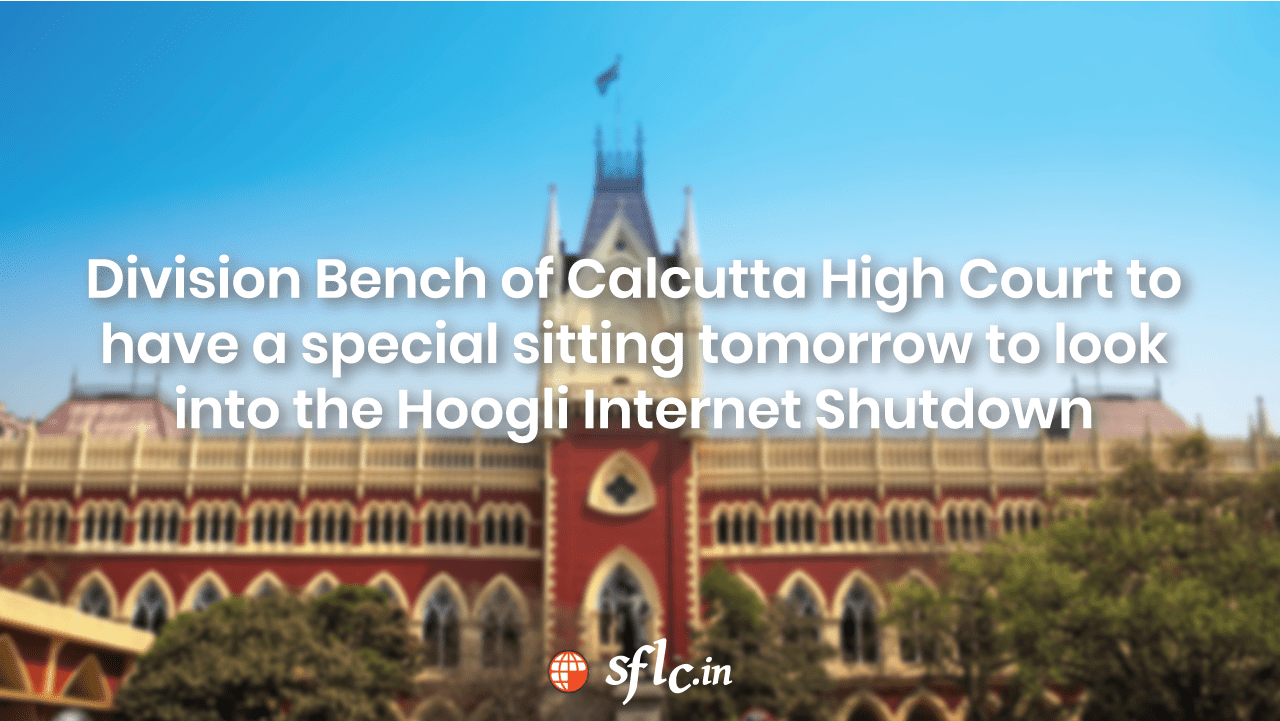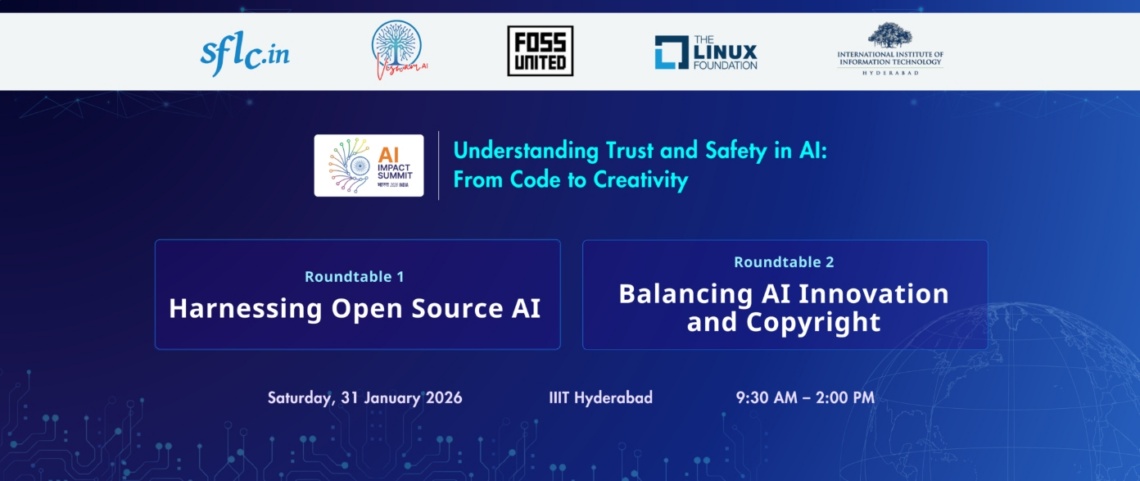Our statement on the petition filed by SFLC.in in the Calcutta High Court challenging the internet shutdown imposed in Hoogli District, West Bengal.
On 12th May 2020, without any advance notice to the citizens, Internet services were cut off in some parts of Hoogli district in West Bengal, following communal riots. From the information that was received by SFLC.in, it was found that the internet had been suspended using Section 144 of Criminal Procedure Code, 1973. The legally prescribed manner of imposing an internet shutdown is through the procedure laid down in Temporary Suspension of Telecom Services (Public Emergency or Public Safety) Rules, 2017 which were notified in 2017. The situation became even more critical as the suspension of the internet for 6 long days would have had a detrimental impact on the fight against COVID-19.
Taking into account the manner in which the internet shutdown was imposed and the hardships being faced by the citizens due to the same, SFLC.in moved a Petition before the Calcutta High Court yesterday, challenging this order of arbitrarily imposed internet shutdown. The matter got listed for today (15th May 2020) before the Bench comprising of the Hon’ble Chief Justice Thottathil B. Radhakrishnan and Justice Arijit Banerjee.
SFLC.in’s Legal Director Prasanth Sugathan appeared before the Hon’ble bench through video conferencing in the matter. It was argued by him that the order issued by the District Magistrate under Section 144 of the CrPC was beyond his jurisdiction as per the provisions of the Telcom Suspension Rules, 2017 which is a special law governing the field. The order was also against the principles and directives laid down by the Hon’ble Supreme Court in Anuradha Bhasin V. Union of India. The Bench asked the Advocate General appearing on behalf of the State to reply to the arguments raised by the Petitioner. Realizing the urgency in the matter, the Hon’ble Bench has convened a special sitting and has listed the matter for tomorrow at 11:00 AM (16.05.2020).
UPDATE (16/05/2020; 7:00 PM)
A special sitting of the division bench took place today at 11AM. In the hearing, a number of contentions were raised by both sides. The Bench was assured by the Advocate General appearing on behalf of the state that no further extension of the shutdown will be ordered.
The Advocate General claimed that all procedural safeguards prescribed under Telecom Suspension Rules were followed in ordering the shutdown. He submitted that although the order was issued under Section 144 of CrPC, the District Magistrate had the authority to pass the order. SFLC.in in its petition had challenged the jurisdiction of the District Magistrate in ordering the shutdown. The Advocate General has claimed in today’s hearing that District Magistrate is a competent authority as he is of the rank of Additional Secretary. SFLC.in has refuted this and was permitted to file a statement to counter this.
Counsel for SFLC.in submitted that the Internet is a lifeline in a pandemic situation enabling people to work, access health care, for students to access educational resources, and for access to justice. The State of West Bengal has already seen 3 shutdowns in 2020 itself. Shutting down the Internet violates the principles of proportionality as laid down in the Anuradha Bhasin judgment.
It was further argued that the shutdown order was not published and no ‘unavoidable’ reason was mentioned in the order necessitating a shutdown as directed by the Apex Court in the Anuradha Bhasin judgment.
Under the Telecom Suspension Rules 2017, a state shutdown can only be ordered by a Secretary, Home Department of the State and in unavoidable circumstances by a person, not below the rank of a joint secretary to the Government of India which has to be ratified by the competent authority within 24 hours.
Further SFLC.in also took permission from the court to file testimonials of citizens affected by the shutdown. On the question of the review committee meeting, it was submitted by the Advocate General that it will be held as per the law laid down in the Anuradha Bhasin judgment.
The Advocate General further questioned the locus of the petitioner in filing the case. The response given by Prasanth Sugathan on behalf of SFLC.in was that SFLC.in has been actively engaged in tracking shutdowns in the country and has been contacted by aggrieved citizens.
SFLC.in represented by its Legal Director, Prasanth Sugathan relied heavily on the law laid down by the Supreme Court in Anuradha Bhasin V. Union of India.
Additionally, the Advocate General has been asked to file affidavit replying to the grounds raised by the petitioner.
The matter is now to be listed on Friday, 22nd May 2020.
SFLC.in would also like to profoundly thank Human Rights Law Network (HRLN) as well as Adv. Indrajeet Dey and Mr. Savio Pinto, State Director HRLN for all their help and support.
A copy of the petition filed is attached below.
SFLC.in has been running an Internet shutdown Tracker since 2012 where it has been recording instances of Internet shutdowns across the country. Till date, the State of West Bengal has had a total of 12 shutdowns since 2017, 3 of which have been in 2020 itself.
SFLC.in has been actively advocating against these arbitrary shutdowns and has been closely monitoring the situation in Jammu and Kashmir. SFLC.in had written an open letter that was sent to the Government of the Union Territory of Jammu and Kashmir on 31st March 2020, requesting it to restore 4G internet in the Union Territory. A statement on the recent hearing on the 4G internet restriction in Jammu and Kashmir can be found here.
SFLC.in considers that Internet shutdowns affect the society adversely and are blatant violations of the fundamental rights to freedom of speech and expression, and the right to conduct trade and the right to life under Articles 19 and 21 of the Constitution of India. SFLC.in is committed to fight against arbitrary shutdown orders which grossly violate the rights of citizens.




